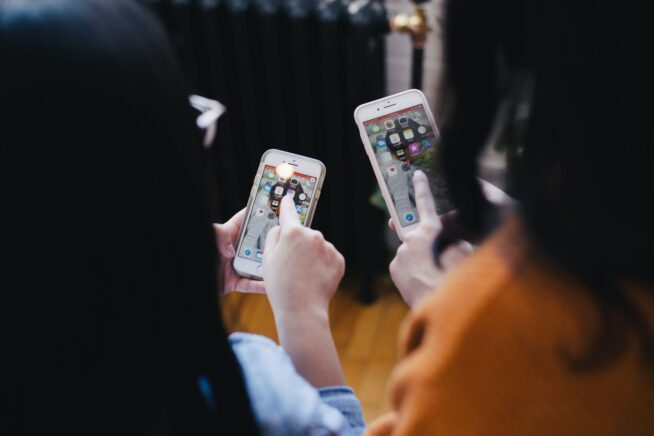A professor at MIT writes about the effects of technology since the beginning of the new frontier of personal computing. Her most recent book is appropriately called “Alone Together.”
She sums it up beautifully: “Mobile technology has made each of us ‘pausible.’ Our face-to-face conversations are interrupted by calls and text messages. In the world of snail mail, it was unacceptable for a colleague to read correspondence during a meeting. In the new etiquette, turning away from those in front of you to answer a mobile phone or a text has become close to the norm.
So many of us are tethered to our phones. It’s a furious race each day to keep up with all the emails, texts, and voicemails that flood in.
In case you were wondering, the average teenager now does homework while engaged in a steady stream of texting, Skype and Facebook.
We may be doing a lot of things at once, but we’re not doing any one of them as well as we could if we did them individually. Multitasking is like a drug. It feels good and the high deceives multitaskers into thinking they are being especially productive. In search of a high, they want to do even more.
And as artificial intelligence evolves even further, there will be even greater challenges. Have you heard of “sociable robots?” The Japanese have engineered Paro, a furry baby seal the size of a large lap dog.
Paro is filled with sensors to be able to physically ad verbally respond to sound, light, touch, and positioning. Paro is designed for therapeutic use, mainly in nursing homes and hospitals. Lonely patients can have emotional connection with Paro who responds to their firm or soft petting, to angry or happy speech and even has a large vocabulary that it can understand. For those who have no visitors or friends, Paro is a $6,000 replacement that can be loved, and seem to give back love in return.
So, as we consider the question of what makes life good, we have to wonder where are we headed? Yes, Twitter increases our public exposure, texting keeps people in our orbit. Facebook makes us look interesting and stand out to others. But to what end?
We seriously need to ask ourselves whether technology is designed to make our lives better and can “Siri” and her “friends” help us achieve it?
Socrates, the famous Greek philosopher, was actually killed for his answer. He was a thorn in the side of Greek culture, which centered around physical beauty, material wealth, and all the external trappings of power. He was all about cultivating the inner person – the heart, the mind and the soul – and famously wrote that “the unexamined life is not worth living.” In the end, he chose to drink the fatal cup of Hemlock rather than give up his principles.
Every study has shown that once we have enough to live comfortably, greater wealth doesn’t increase our feeling of well-being. In fact, sometimes it even has the opposite effect.
What does matter in this age of technology? The family and friends who comfort us, words of love and affection. Physical touch and human contact. A feeling of serenity that comes from a practiced spiritual life.
We cannot turn the clock back. Artificial intelligence will only grow in power, sociable robots will become more realistic, and new frontiers of virtual reality are beyond what we can imagine.
The rabbi in his Holy Day sermon said that we should make a pact, and use our phones and computers, it will be for a higher purpose-as tools to further our good and worthy pursuits, and not as a distraction or a subtraction from the living that truly matters.
As it is, we don’t have time in our lives “to have time for everything” as Ecclesiastes says. But we can use the time we have, for a good life and a better world.
Rabbi Hirshel Jaffe, a cancer survivor, is a motivational/inspirational speaker on the theme NEVER GIVE UP! He authored “Why Me? Why Anyone?” which chronicles his rescue from leukemia and his spiritual triumph over despair. Known as “The Running Rabbi” for competing in the NY Marathon, he received the “Award of Courage” from President Ronald Reagan in a White House ceremony. Rabbi Jaffe was one of the clergy who visited the American hostages in Iran to offer them comfort and hope and was asked by the President to greet them at the White House upon their return. He received an honorary Doctorate from his seminary for “his work with the sick, and his noble influence upon all people. You can find more information on his website.
Image courtesy of You X Ventures.












